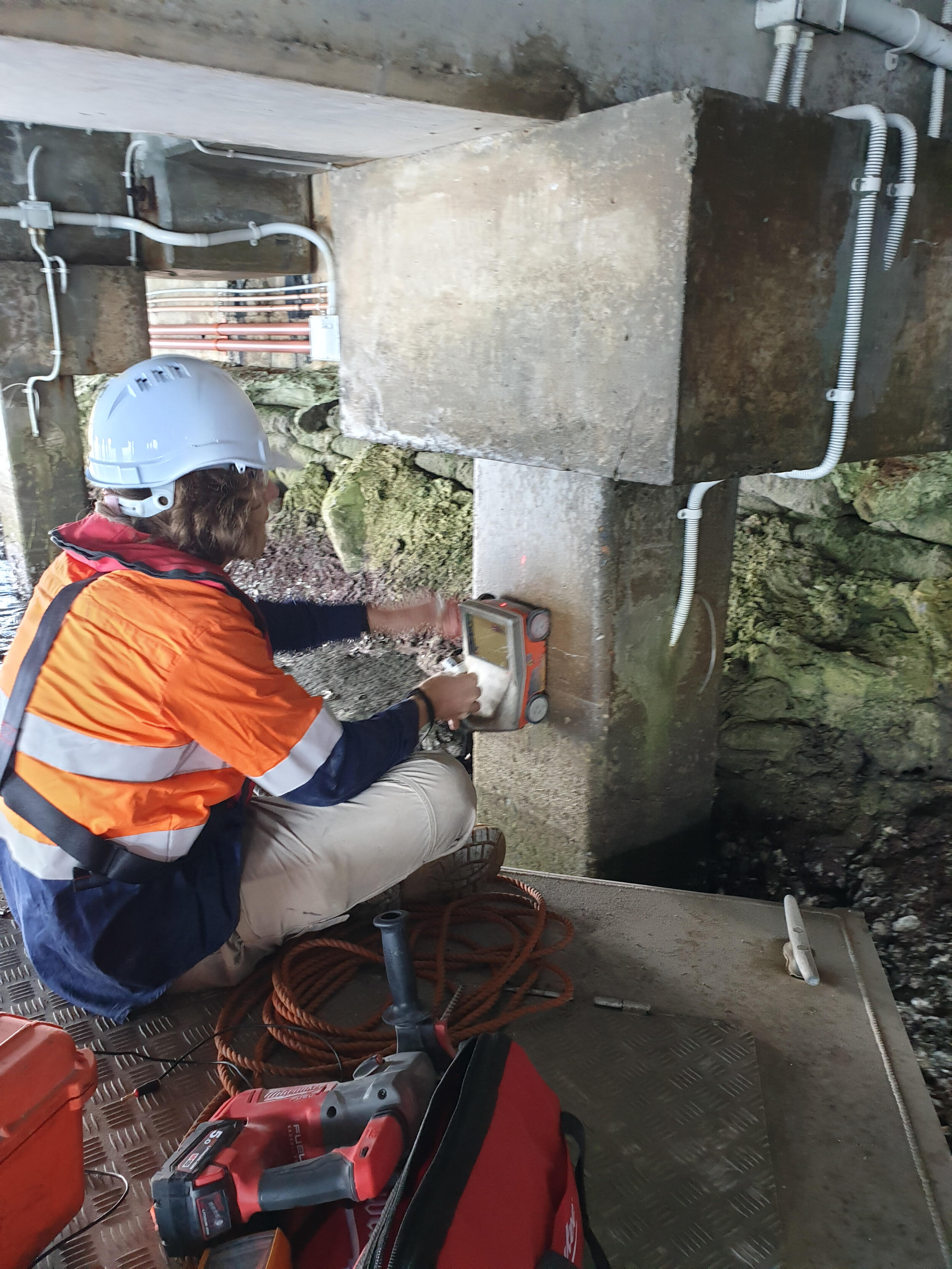GOODWOOD ISLAND WHARF
The Goodwood Island Wharf before the repair works.
Under the wharf, extensive concrete deterioration and exposed reinforcement.
Testing on site as part of the investigation.
Desktop assessment identified and assessed remedial options for the wharf.
Goodwood Island Wharf
CLIENT: Port Authority of New South Wales
The Goodwood Island Wharf is located on the Clarence River, Yamba, and was constructed circa 1968. The wharf is constructed with pre-cast driven concrete piles, reinforced concrete pile-caps and headstocks and an in-situ poured concrete deck. Deterioration of the reinforced concrete elements had been observed and the long term serviceability of the structure was uncertain. Infracorr was engaged to initially complete a Desktop Study and then verify its assessment through an on-site Condition Assessment.
PROJECT HIGHLIGHTS
• Existing Impressed Current Cathodic Protection (ICCP) system
damaged by major flooding in the river
• Initial assessment of life cycle costs associated with repair conducted
• Two-day on-site extensive investigation and testing undertaken to
verify desktop assessment
• Extensive chloride-induced reinforcement corrosion discovered
throughout much of the structure
• Hybrid CP remediation system recommended
• Approximate 30% potential cost saving compared to other
remediation options
CHALLENGES
An Impressed Current Cathodic
Protection (ICCP) system had
been installed in conjunction with
substantial concrete repairs around
2006, however this system was
damaged by a major river flood in
2013 and has not been operational.
since.
• The wharf sits near the mouth of
the tidal Clarence River with parts
receiving significant amount of
splash due to being positioned
above breakwater rocks
• Infracorr initially conducted a
Desktop Study to assess the life
cycle costs associated with a variety
of repair options
• A full Condition Assessment
including quantification of defects
was recommended to validate the
findings of the desktop assessment
• Further testing revealed extensive
chloride-induced reinforcement
corrosion throughout the piles, pile
caps and some headstocks with the
majority of the deck remaining in
good condition
SOLUTIONS
A two-day on-site investigation was
conducted including a visual and
delamination survey, an electrical
continuity survey, half-cell potential
testing, chloride concentration
modelling, carbonation testing,
corrosion rate testing, concrete
resistivity and hardness testing.
• Through thorough investigation,
Infracorr were able to document five
concept remediation solutions for the
client to consider
• Options were considered for both
short and long-term outcomes and
associated project costs
• The preferred long-term solution was
for a Hybrid CP system to protect all
active corroding areas, with localized
patch repairs to spalling elements
and silane coating to further protect
exposed concrete above mid tide
• A clear recommendation for Hybrid CP
system was delivered by Infracorr to
the client
• This solution represented the lowest
whole of life cycle costs of the five
concept solutions when considering
maintenance, ongoing works and lost
capacity (by approximately 30%)
• Potential extension of the asset life in
the order of 30 years would be able to
be achieved





